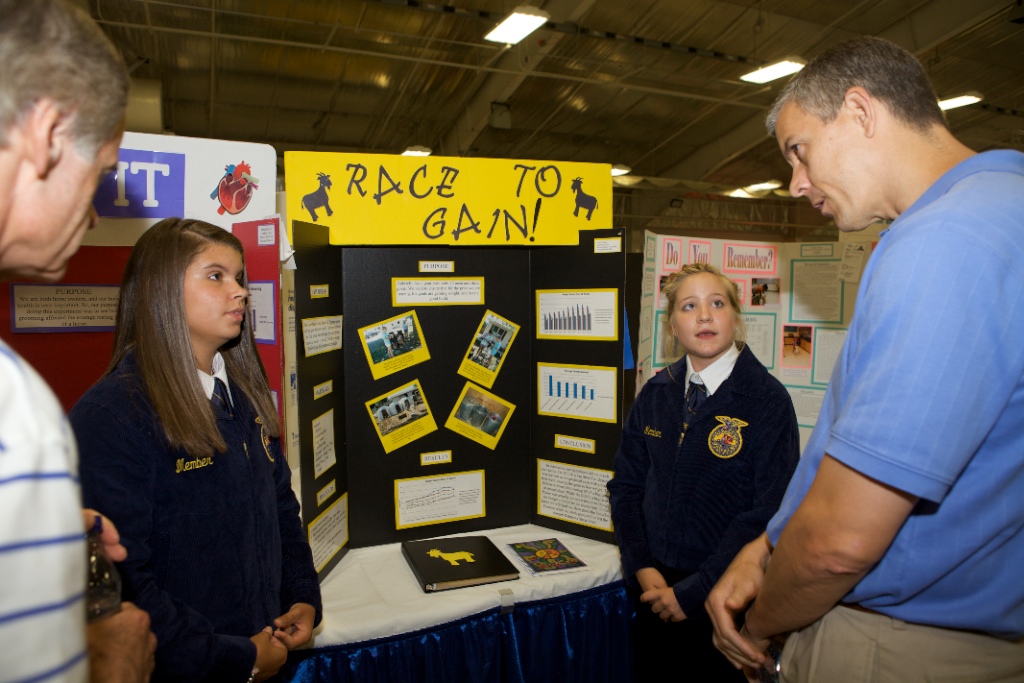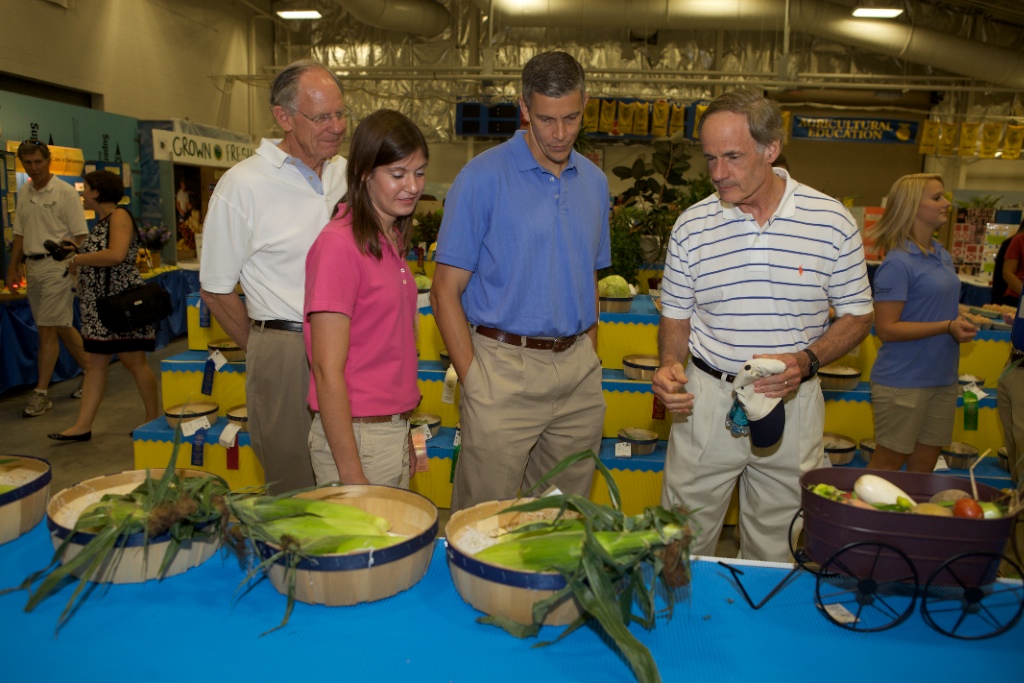
On Friday, I joined Senator Tom Carper and Representative Mike Castle at the Delaware State Fair in Harrington, DE. We spent the day with 4-H and Future Farmers of America students. We saw the results of their hard work on farming vegetables, baking pastries and pies from scratch, sewing garments and tending to farm animals. The students participating in 4-H, a program run by the U.S. Department of Agriculture’s National Institute of Food and Agriculture and the National Future Farmers of America Organization, showed me first-hand the vital contributions of our nation’s rural communities.
The President is dedicated to promoting and developing the work of rural America. That’s why the American Recovery and Reinvestment Act provided $53 billion to support the ability of rural communities to gain access to the health care, educational, economic, and infrastructure development resources. To better understand the needs of rural communities, the President asked Cabinet members to visit communities across the nation on a Rural Tour. Over the last year, the Administration has engaged thousands of people in a conversation about how towns, states, and the federal government can work together to help strengthen rural America. In addition to the Delaware State Fair, I have visited remote villages in Alaska and an Indian reservation in Montana.
At the Department of Education, we understand that rural communities often lack the resources needed to provide students with the academic tools and professional support needed for a 21st century education. Under the Blueprint for Reform, a revision of the Elementary and Secondary Education Act (ESEA), we’re proposing to maintain formula funding to support rural school districts while increasing funds and flexibility in competitive grant programs by giving priority to rural initiatives and simplifying their application process. A recent evaluation of the implementation of the Rural and Low-Income Schools (RLIS) Program showed that rural district officials appreciate the flexibility of RILS to meet local needs. We want to continue and expand programs like RLIS, which help rural districts purchase technology, provide professional development for teachers and support instructional programs for low-income students.
More than half of the nation’s school districts are located in rural areas and one-fifth of all public school children are enrolled in rural schools. We want to continue to reach out to rural communities and directly engage them as we reform our education policies. Just last week, I joined with Smithsonian Secretary G. Wayne Clough to co-host a National Rural Education Technology Summit. Members of the Federal Communications Commission, Department of Agriculture and more than 150 rural education stakeholders and technology experts from 26 states came together to learn from one another and provide vital feedback. Our engagement with rural communities has helped us to propose policies that will better support rural school districts. I look forward to continuing our efforts to maintain outreach to rural communities and to promote policies that best meet their needs.
Arne Duncan is the Secretary of Education




